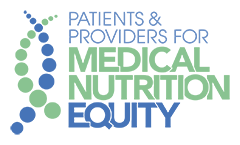Sarah, who lives near Atlanta, GA, was a healthy baby, born full term to a mom who had a normal and healthy pregnancy. She was breastfed exclusively until four months old. The first time Sarah’s mom introduced rice cereal, Sarah became very ill a few hours after eating. Sarah’s pediatrician diagnosed her with a gastrointestinal virus and told her to give her only breast milk for a few days. About one week later, Sarah started vomiting and had diarrhea after eating rice cereal and this time Sarah was admitted to the hospital. She was diagnosed with FPIES and now Sarah’s family was faced with the challenge of finding foods that would not trigger an episode of vomiting and diarrhea.
Sarah is not able to eat rice, oatmeal, drink milk or eat anything that contains milk; she has to avoid all foods that contain soy and must also avoid several fruits. She is often tired, fussy, gets colds and has not been growing well or meeting her developmental milestones.
A registered dietitian recommended the use of a hypoallergenic formula to give her the calories, protein, fat, vitamins, and minerals she needs to grow well and be healthy. Sarah is willing to drink the formula and the amount that was recommended by the dietitian. However, her family is unable to get insurance coverage for it which has placed an enormous financial burden on the family. Without the addition of the medical food to her daily routine, Sarah will continue to have nutritional deficits that will impair her growth and may impair her cognitive development.
